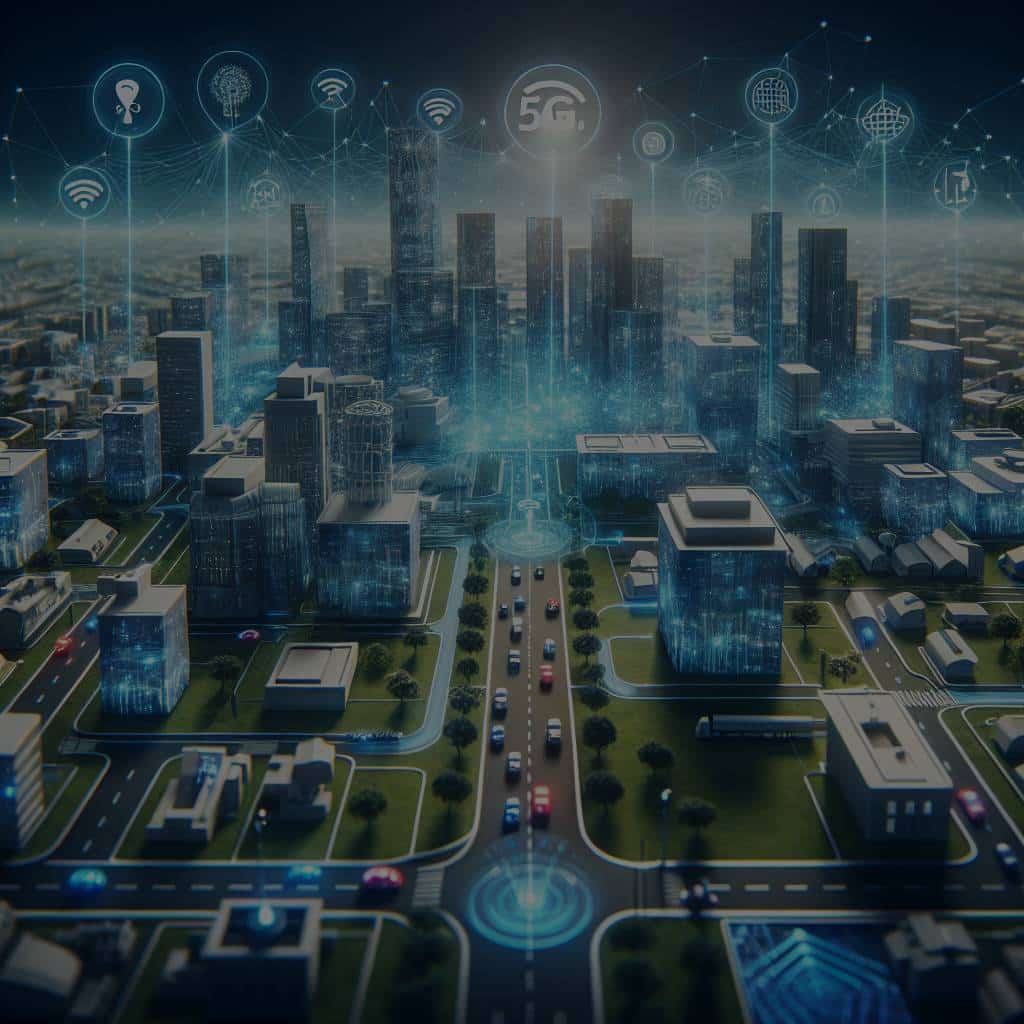What Is the Impact of 5G on UK Smart Cities’ Development?

As the world becomes more digitally interconnected, the emergence of smart cities has been a significant milestone in urban development. These smart cities harness cutting-edge technology to improve the quality of life for their citizens. The advent of 5G technology is revolutionising these urban landscapes, with the UK at the forefront of this digital transformation. In this comprehensive article, we will delve into the impacts of 5G on smart cities’ development in the UK.
The Digital Transformation of UK Cities
The evolution from traditional towns and cities to digitized, smart cities represents a paradigm shift in urban development. Today’s cities are dynamic entities, with digital technologies being integrated into the urban ecosystem to enhance connectivity, efficiency, and sustainability. The UK, being a global technology pioneer, is at the vanguard of this digital revolution.
A lire aussi : What Are the Best Practices for Data Encryption in UK Small Businesses?
At the heart of this transformation is 5G technology. Compared to its predecessors, this fifth-generation mobile network offers faster data speeds, lower latency, and the ability to connect to a multitude of devices simultaneously. This unprecedented level of connectivity and data exchange is laying the groundwork for smarter, more interconnected cities.
5G and the Internet of Things (IoT) in Smart Cities
5G networks are instrumental in facilitating the Internet of Things (IoT) in smart cities. The IoT refers to the network of physical devices — from cars to home appliances — that are connected to the internet, collecting and sharing data. This interconnectedness allows for a more integrated and efficient urban environment.
Lire également : How Can Telecommuting Be Effectively Managed in UK Law Firms?
The integration of 5G and IoT applications in smart cities enhances a variety of services, from transportation to public safety. For instance, intelligent traffic management systems use real-time data from connected vehicles and traffic sensors to optimize traffic flow, reducing congestion and emissions. Similarly, public service providers can leverage IoT data to enhance emergency response times and increase public safety.
Transforming Public Services with 5G
5G networks can revolutionize public services in smart cities by increasing efficiency and responsiveness. With lightning-fast data speeds and real-time communication, 5G enables public service providers to quickly respond to citizens’ needs.
For instance, in healthcare, 5G could enable real-time remote patient monitoring, telemedicine, and even remote surgeries. In education, the high-speed connectivity could facilitate immersive learning experiences through virtual and augmented reality technologies.
Additionally, 5G networks can enhance public safety by enabling smart surveillance systems that leverage artificial intelligence (AI) and machine learning. These systems can analyze real-time video feeds to detect anomalies, helping police and emergency services to respond more quickly and efficiently.
5G and Mobility in Smart Cities
The integration of 5G technology in smart cities could revolutionize urban mobility. This includes everything from autonomous vehicles to smart traffic management systems.
Autonomous vehicles rely on instant communication and data exchange to function safely and efficiently. With 5G’s low latency and high capacity for simultaneous connections, autonomous vehicles can communicate with each other, traffic management systems, and pedestrians in real time. This could potentially reduce traffic accidents and improve traffic flow in smart cities.
Moreover, 5G could enable smarter, more efficient public transportation. For example, real-time data from connected vehicles and infrastructure can help optimize public bus routes and schedules, enhancing the efficiency of public transportation.
Enhancing Urban Living through 5G Technology
The integration of 5G technology into smart cities is not solely about efficiency and connectivity — it’s also about improving the quality of life for urban residents. With 5G, cities can become more sustainable, resilient, and livable.
For instance, 5G networks can enable smart grid technologies, which optimize the distribution of electricity based on real-time demand and supply data. This can reduce energy consumption and contribute to sustainability efforts.
Similarly, 5G can facilitate smart waste management systems that use sensors to monitor waste levels in real-time, optimizing waste collection routes and schedules. This not only makes waste management more efficient, but also contributes to cleaner, healthier urban environments.
In summary, the integration of 5G technology is revolutionising UK’s smart cities, enhancing connectivity, improving public services, revolutionizing mobility, and enhancing urban living. As 5G continues to evolve and mature, its impact on the development of smart cities in the UK will become increasingly profound.
Artificial Intelligence and 5G: Towards Smarter Cities
Artificial intelligence (AI) is playing a crucial role in the transformation of smart cities in the UK. AI, when combined with the power of 5G, is enabling cities to become more intelligent, efficient, and responsive.
In a smart city, AI can help analyze large volumes of data in real time, thanks to the high-speed, low latency characteristics of 5G networks. For instance, AI can analyze traffic data to predict congestion and suggest alternative routes, improving intelligent transportation systems. Similarly, AI can assist in predicting energy demands to optimize the distribution of electricity in real time, contributing to more sustainable cities.
AI can also enhance public safety in smart cities. With 5G-enabled real-time video analysis, AI can detect unusual activities and alert authorities in no time, improving response times and overall security. Moreover, with the combination of AI and 5G, autonomous driving is becoming a reality. Autonomous vehicles, powered by AI algorithms and 5G’s ultra-fast mobile communication, can make decisions in real time, improving the safety and efficiency of transportation systems.
In the realm of healthcare, AI and 5G are opening up new possibilities. For example, AI can analyze patient data in real time for early detection of diseases, while 5G enables telemedicine and remote surgeries, bringing healthcare services closer to patients’ homes.
Concluding Thoughts: The Future of 5G in UK’s Smart Cities
In the light of the above, it’s clear that 5G is a game-changer for smart cities’ development in the UK. The advent of this cutting-edge technology is paving the way for more efficient, sustainable, and intelligent cities. From enhancing public services to revolutionising the transportation systems, the possibilities with 5G and smart cities are virtually endless.
In addition, the integration of AI and 5G is offering promising solutions to some of the most pressing urban challenges. Autonomous driving, powered by 5G and AI, could drastically reduce traffic accidents and congestion. Similarly, real-time monitoring of patient health, enabled by 5G, could revolutionise healthcare delivery.
However, the transition to 5G comes with its own set of challenges. Network slicing, security and privacy, and the need for private networks are some of the issues that need to be addressed as the adoption of 5G continues.
As we move forward, it’s crucial to address these challenges to fully harness the potential of 5G in enhancing our urban lives. The journey of transforming traditional cities into smart cities is a complex one, but with 5G and other digital technologies, the UK is well on its way towards a smarter, more sustainable future.
In conclusion, the role of 5G in the development of smart cities in the UK cannot be understated. With its ability to connect devices in real time, enable autonomous vehicles, improve public safety, and enhance urban living, the impact of 5G on UK’s smart cities is set to be profound and long-lasting. The future of UK’s urban development indeed looks bright with 5G leading the way.
